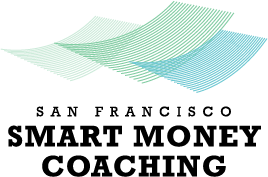Dealing With a Financial Crisis
In moments of financial crisis, it is important to make a plan knowing all of your rights and options. If you are experiencing financial hardship, schedule an appointment with a Smart Money Coaching certified financial counselor or check out our resources below.

Get help today with:
San Francisco offers a variety of supports for renters experiencing housing insecurity due to financial hardship.
If you have experienced a recent financial hardship and need one-time help with back rent or a security deposit, you may qualify for one-time assistance through San Francisco’s Emergency Rental Assistance Program (ERAP). Find out more and apply here.
If you need help negotiating a payment plan with your landlord, you may contact the Bar Association of San Francisco’s Conflict Intervention Service for support. Learn more here and request help by emailing cis@sfbar.org.
If you receive eviction documents, immediately seek legal help from the Eviction Defense Collaborative (EDC) at (415) 659-9184 or legal@evictiondefense.org, or visit EDC at 972 Mission St., Monday, Tuesday, Wednesday or Friday, 10-11:30 am and 1-2:30 pm.
If you need advice about your specific situation, contact the Rent Board, a mediator, a tenant counselor, or another resource listed under our community partners page. All these services are available at no cost.
California offers unemployment assistance, so if you have lost your job, had your hours reduced, or experienced a loss of income, you should file for unemployment – click here to file your claim and get more information.
Have unemployment questions or problems? Click here to get assistance from the City and County of San Francisco (including unemployment, paid sick leave, or family leave and childcare). You can also get help from local nonprofit Legal Aid at Work.
Recently, millions of student borrowers began repaying student loans after more than three years of a COVID-related payment pause. If you are struggling to pay your student loans, you have options and taking action soon is important!
Federal Student Aid offers guidance for borrowers who are having trouble making payments. You should contact your loan servicer as soon as possible to explore your options: you may be able to change your repayment plan to lower your monthly payments, sometimes to $0 per month, or take options of loan forbearance, deferment, or consolidation.
Visit OFE’s Student Loan Resource Page for more information on your options for relief.
Having trouble with debt collectors, wage garnishment, credit reports, or other legal questions? Help is available!
For help navigating debt collection, credit errors, or other legal issues, call Bay Area Legal Aid’s Legal Advice Line at 800-551-5554. You can also check out this comprehensive list of Bay Area legal resources.
You have rights as a consumer! For information about credit reports, credit cards, student debt, debt collection, bankruptcy, and identity theft, click here.
If you are experiencing financial crisis and unable to cover the cost of your utilities, contact local utility companies for help.
The San Francisco Public Utilities Commission offers a 25-40% discount to eligible customers through their Customer Assistance Program (CAP). Customers enrolled in CAP are exempt from water shut offs and liens.
PG&E offers a variety of supports for customers experiencing financial hardship, including temporary payment plans and their monthly discount program for income-eligible clients, California Alternate Rates for Energy (CARE). Visit their website to determine the best options for you.
In partnership with the San Francisco Financial Justice Project, many City and County Departments are acting to alleviate the impact of fines, fees, and collections on low-income residents hardest hit by this crisis. For information on how to get discounts and other relief from parking, towing, and traffic fines, child support payments, court-ordered collections, and more, read more here.
- About pay day loans - When your monthly budget doesn’t stretch through your next payday, you may find yourself in need of quick cash. Payday loans, short-term, small-dollar loans, may seem like a good solution, but they come at a huge cost. Their interest rates are usually well over 300%. Plus, lump-sum payments and hidden fees can eat up a large chunk of borrowers’ regular paychecks. Rather than bridging a gap, these loans can fuel a cycle of more and more debt. To make matters worse, payday loans and other alternative financial services do not come with the insurance and consumer protections that banks offer.
- About early wage access apps - Early Wage Access companies offer employees advances on their pay, often for a fee. Many provide an app to quickly apply for funds. Due back on payday, these are short-term loans. In this transaction, a company markets a payday advance directly to the consumer and collects repayment by debiting their bank account. Since these products are not connected to an employer’s payroll system, they require access to the borrower’s checking account to repay the loan. Many of these loans carry interest rates as high as payday loans: data from California’s financial regulator on several leading EWA companies show an average APR over 300%. These companies often distinguish the true cost of their product by marketing their loans as “free” while soliciting so-called “tips,” which can be very high relative to the amount of the loan.